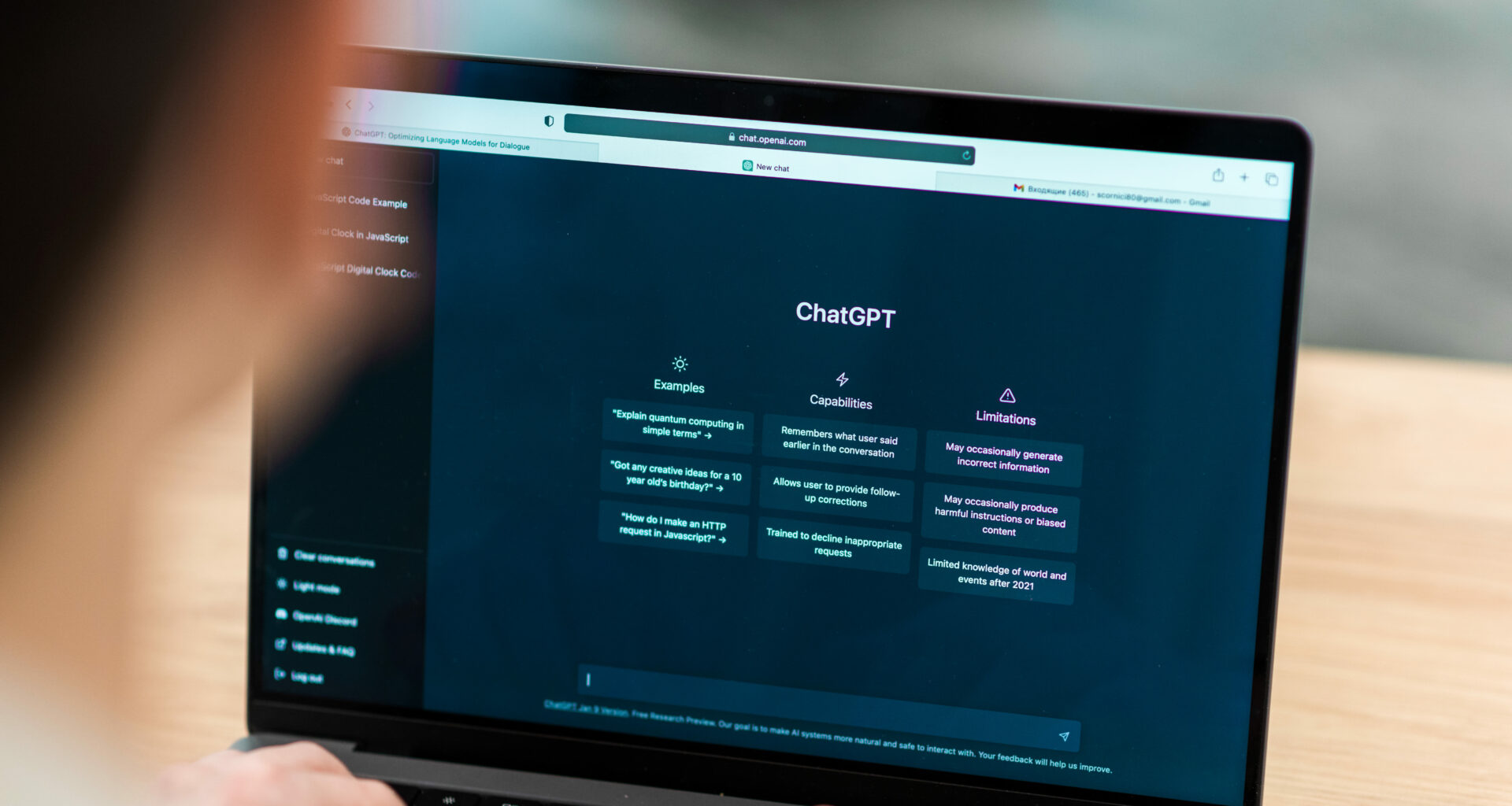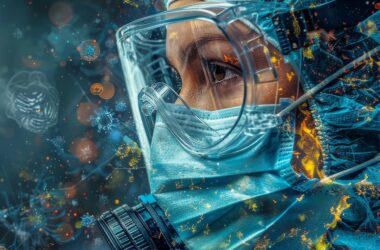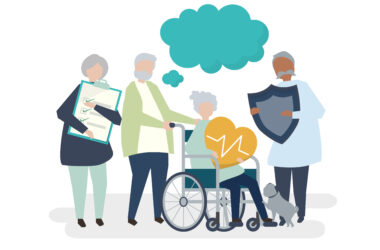For decades, a “one-size-fits-all” approach dominated treatment plans, often overlooking individual differences. However, a revolution is brewing. Personalized medicine, a revolutionary approach that tailors treatments to your unique biology and needs, is gaining momentum. At the forefront of this change lies a powerful tool: ChatGPT, a large language model (LLM) with the potential to transform healthcare delivery.
We are talking about a future where chatbots powered by ChatGPT answer your health questions in a clear, informative way. Picture a world where this same technology analyzes your medical data and suggests personalized treatment options alongside your doctor. This future is closer than you might think. Let’s delve into the fascinating world of ChatGPT healthcare, exploring its potential to personalize your healthcare journey.
The Power Of Large Language Models (LLMs)
Before diving into ChatGPT’s potential applications in healthcare, let’s understand what it is. Large Language Models (LLMs) are complex AI systems trained on massive amounts of text data. This allows them to process and generate human-like text, translate languages, write different types of creative content, and answer your query in an informative way. Developed by OpenAI, ChatGPT is a powerful LLM oriented on a large dataset of text and code. This training enables it to transmit and produce human-like text in response to diverse prompts and questions.
Tailoring Treatments To Deliver Quality Care
Personalized medicine represents a significant shift in healthcare. It moves away from a standardized approach and embraces the intricate tapestry of factors that influence individual health. This approach leverages advancements in several key areas:
- Genomics: Your genetic makeup plays a critical role in your susceptibility to diseases and how you respond to medications. Personalized medicine utilizes genetic information to identify potential health risks and tailor treatments accordingly.
- Big Data Analytics: The healthcare industry produces vast amounts of data from patient health records, clinical trials, and wearable devices. Big data analytics tools can analyze this data deluge to identify patterns, predict potential health risks specific to you, and ultimately, develop personalized treatment strategies.
Personalized medicine offers numerous benefits for patients:
- Improved Treatment Efficacy: Tailoring therapies to your individual needs significantly increases the effectiveness of medications and treatments, leading to better health outcomes.
- Reduced Side Effects: Understanding your genetic makeup can help predict potential adverse reactions to medications, allowing for safer and more tolerable treatments.
- Patient Empowerment: Personalized medicine places you at the center of your care journey. By understanding your unique health profile, you can actively participate in decision-making regarding your treatment options, building a sense of ownership and control over your health.
Unveiling ChatGPT’s Potential In Healthcare
ChatGPT’s capabilities align perfectly with the core principles of personalized medicine. Here’s how this innovative LLM and natural language processing (NLP) can revolutionize healthcare services:
1. Patient Education and Engagement: Imagine a world where readily available chatbots powered by ChatGPT can answer your healthcare questions in a clear and informative way. These chatbots could deliver educational materials tailored to your specific needs, helping you better understand your condition and treatment options. This empowers you to actively participate in your healthcare decisions.
2. Clinical Decision Support: Clinical decision-making is a complex process that needs careful consideration of various factors. ChatGPT can be a valuable tool for healthcare professionals. By analyzing your medical data, including lab results, genetic information, and medical history, ChatGPT could suggest evidence-based treatment options personalized to your unique needs. This would support doctors in developing personalized treatment plans for optimal effectiveness.
3. Improving Communication: Effective communication is crucial in healthcare. ChatGPT can assist healthcare providers in crafting personalized communication strategies for patients. This could involve tailoring explanations of medical conditions, treatment options, and potential side effects to your specific level of understanding. Clear communication encourages trust and empowers you to make informed decisions about your health.
4. Mental Health Support: Mental health is an increasingly recognized aspect of overall well-being. ChatGPT-powered chatbots could offer initial screenings for mental health conditions and provide essential support through personalized conversations. This could be a valuable resource, particularly in areas with restricted access to mental health professionals.
The Road Ahead
The responsible and ethical utilization of ChatGPT in healthcare is paramount. This requires collaboration between AI developers, healthcare professionals, and policymakers. Joint efforts are needed to ensure that AI tools like ChatGPT are used responsibly, with robust data privacy measures in place and ethical considerations addressed. Moreover, the dynamic nature of AI technology necessitates ongoing research and development to refine ChatGPT’s capabilities and further integrate it into healthcare systems. The future of ChatGPT healthcare holds immense promise.
FAQs
Here are five frequently asked questions about ChatGPT healthcare that you might find interesting:
1. What is ChatGPT and how does it relate to healthcare?
ChatGPT is a large language model (LLM) trained on massive amounts of text data. It can generate human-like text, translate languages, and answer questions in an informative way. In healthcare, ChatGPT has the potential to personalize patient care through educational chatbots, clinical decision support for doctors, and improved communication strategies.
2. How can ChatGPT personalize my healthcare journey?
ChatGPT-powered chatbots can answer your health questions, deliver educational materials tailored to your needs, and help you understand your treatment options. It can also assist healthcare providers in crafting personalized communication strategies for you.
3. Can ChatGPT replace doctors?
No. ChatGPT is a valuable tool to support healthcare professionals, not replace them. It can analyze data and suggest personalized treatment options, but doctors will always be crucial for diagnosis, treatment decisions, and patient interaction.
4. Are there any safety concerns with using ChatGPT in healthcare?
Data privacy is paramount. Collaboration between AI developers, healthcare professionals, and policymakers is essential to ensure responsible use of ChatGPT in healthcare, with robust data privacy measures in place and ethical considerations addressed.
5. What’s the future of ChatGPT in healthcare?
The future holds immense potential. Ongoing research and development will refine ChatGPT’s capabilities and lead to further integration into healthcare systems. This could include personalized medication management and preventative healthcare strategies.
[Previous Read: Revolutionizing Healthcare Supply Chain With Healthcare GenAI]










